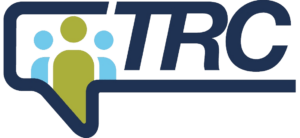Recruitment is critical for companies to match the right talent with the right job opportunities. Traditional methods of recruiting can be time-consuming and resource-intensive, which is where our AI technology comes into play, revolutionizing the recruitment landscape and designed to increase candidate quality, hiring efficiency, and the overall candidate experience and allowing your business to get better candidates in a shorter amount of time through the following avenues:
Human Abilities that Cannot be Replaced by AI
In the rapidly advancing era of technology, artificial intelligence (AI) has emerged as a powerful tool, transforming various aspects of our lives. From automating routine tasks to revolutionizing industries, AI has demonstrated its potential and sparked discussions about its role in replacing human talent. However, despite the advancements in AI, humans possess inherent qualities that make them irreplaceable and, more so, surround the importance of striking a harmonious balance between the two.
One of the fundamental aspects of human talent is creativity. The ability to think outside the box, come up with innovative solutions, and apply critical thinking sets humans apart. AI, while capable of processing vast amounts of data and recognizing patterns, lacks humans’ creative and imaginative capabilities. Creativity drives invention, and it is through human ingenuity that groundbreaking ideas and breakthroughs have come to fruition.
Furthermore, and tangential to creativity, emotional intelligence is another defining characteristic of human talent. Understanding and empathizing with others, communicating effectively, and building meaningful relationships is a crucial aspect of many professions. AI, with its algorithms and machine learning, may simulate emotions to a certain extent, but it lacks the depth and intuition that humans bring to interpersonal interactions.
While AI may not replace human talent, it can undoubtedly enhance and augment it. AI excels in performing repetitive, mundane tasks, freeing up human talent to focus on more complex and creative endeavors. For instance, AI-powered diagnostic systems in healthcare can analyze medical images and data to identify potential diseases. This enables medical professionals to make more accurate diagnoses and provide personalized treatment plans, ultimately improving patient care.
In the realm of customer service, AI-powered chatbots can efficiently handle routine inquiries, allowing human representatives to address more complex and nuanced customer issues. By automating repetitive tasks, organizations can improve their efficiency and productivity while still benefiting from human expertise in handling complex scenarios.
Addressing the ethical implications of relying solely on AI to replace human talent is essential. AI algorithms are trained on historical data, which may contain biases and reinforce existing inequalities. If left unchecked, this could perpetuate discrimination and exclusion, amplifying the flaws in our society. Human talent, with its moral compass and capacity for empathy, plays a vital role in mitigating such biases and ensuring fairness in decision-making processes.
In the grand scheme of things, AI is a powerful tool that holds immense potential to augment human talent and revolutionize industries. However, it is crucial to acknowledge that certain qualities unique to humans, such as creativity, emotional intelligence, and ethical considerations, cannot be replicated by AI alone. By embracing the strengths of both AI and human talent, we can create a symbiotic relationship that propels us into a future where innovation and compassion thrive side by side.
Helping Connect Top Professionals to the Right Positions
From hiring techniques to updating your current recruitment strategies, TRC is here to help your business. Contact us today to learn more about our solutions.



